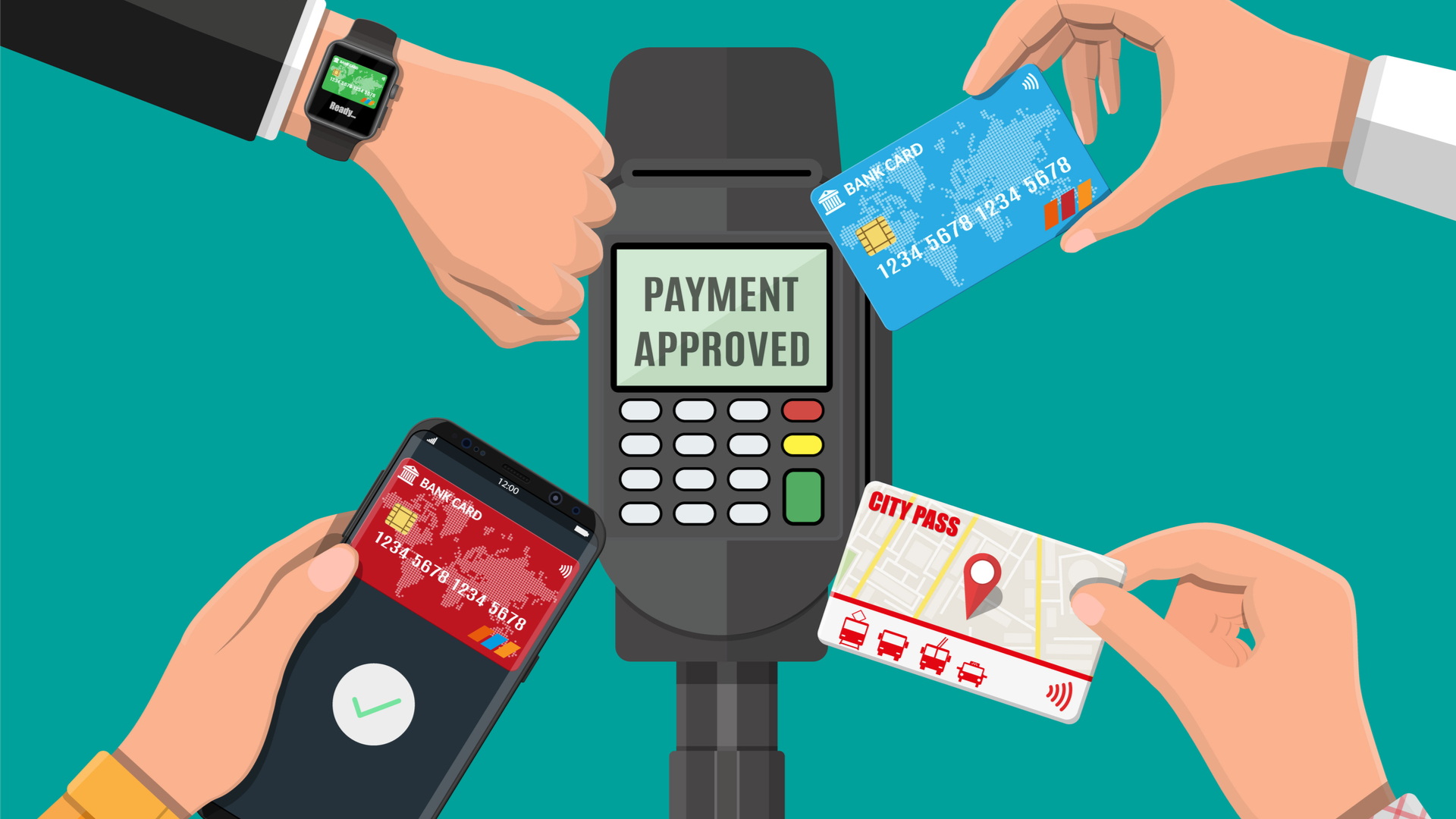
The pros and cons of a cashless society
Posted on: 4th September 2020 in
Finance
The idea of using a rectangular device or microchips to pay for everything would have sounded like something from a science fiction movie in the 90s.
In 2021, it’s a reality. In fact, cards overtook cash as the UK’s payment method of choice for the first time last year.
Is cash destined for the same fate as the VHS or floppy disk, doomed by advances in technology? Probably not. Still, the way we spend and manage our finances is changing, and there are pros and cons.
Before we get to that, let’s take a look at what a cashless society is and the catalyst driving the change.
What a cashless society means
The idea of a cashless society is nothing new; they have existed in some form throughout history.
The Mesopotamians introduced a barter system some 8,000 years ago. Instead of using a currency, goods would have been exchanged for other items. The modern-day definition of a cashless society is a little different.
The term refers to an economy where you pay for goods and services electronically, rather than with a physical currency. Some countries, such as Sweden are already moving towards this type of system.
The Scandinavian country has rapidly moved away from cash in recent years. Around 80% of Sweden’s population use digital payments to make purchases.
While Sweden has one of the highest rates of cashless payments in the world, Japan has one of the lowest. The East Asian country’s rate of cashless payments is only 21.7%, something the government is looking to change.
The Japanese government has introduced several measures to speed up the country’s transition towards a cashless economy. The aim is to increase the cashless payment rate to 40% by 2025.
The UK is some way off Sweden’s rate of cashless payments, but figures from UK Finance suggest we are heading in that direction. The trade association revealed that card or contactless payments accounted for 51% of all UK transactions in 2019.
We are still some way off being completely cashless, but the figures do suggest that we have become a cash light society. There are now questions whether the current climate is accelerating that move from cash light to cashless.
Is COVID killing cash?
Going cashless could be a temporary symptom of Covid-19. Data provided by Link, the company which operates the largest cash machine network in the UK, highlights the impact of Covid-19 on cash.
Link found that cash withdrawals were down 60% during lockdown compared to the same period last year. These figures make sense; after all, most places are not accepting cash payments to reduce contact and for hygiene reasons.
Has the pandemic accelerated the move towards a cashless society?
UK Finance points out that the Covid-19 crisis has made analysing trends and forecasts challenging. However, further data provided by Link does give us an insight into consumer behaviour.
Their research found that just over half (54%) said they are avoiding cash and opting for other methods of payment, something that could also have a lasting effect. Link went on to reveal that 72% said that Covid-19 would affect their use of cash in the future.

The pros
With more people switching to electronic payment methods either by choice or because of circumstances, there are some clear benefits – especially in the current climate.
The Bank of England and the World Health Organization have stressed that cash isn’t any more likely to carry Covid-19 than other items. Still, electronic payments help with social distancing and reducing contact.
Cost concerns associated with cash is another issue.
The Access to Cash Review revealed that Britain’s cash infrastructure costs £5 bn a year to operate. The retail banks pay for a large chunk of the operational costs, but ultimately it’s consumers bear the costs.
Another cost factor for consumers is the human error involved with cash payments.
A study by market analysts Asktraders revealed that one in four had been short-changed by £1 in the last 12 months. That may not like much, but it soon adds up. In fact, over the space of a year, that’s around £13 million lost due to incorrect calculations.
Electronic payments also provide added security. Bank statements record cash-free payments, which makes it much easier to track missing money.
The cons of going cashless
Going cash-free does have its drawbacks.
The more reliant we become on electronic payment methods, the more we need the technology and infrastructure to support them.
The trouble with technology is it’s vulnerable to failures or even hackers. Action Fraud revealed over £11m has been reported lost due to COVID-related scams.
The concerns with going cashless extend beyond crime. Managing your finances and budgeting could become more challenging if you’re not careful.
Online shopping has made it easy to purchase items with one click of a button or swipe of a finger. There is a case to be made that due to the ease of use and no physical exchange of money, going cashless could create bad spending habits.
Rethinking our finances
It doesn’t look like cash is going anywhere anytime soon. A large portion of the population still relies on a physical currency to pay for goods and services.
However, our reliance on cash is dwindling. The cash currently in circulation accounts for less than 5% of the UK’s GDP. A truly cashless society may be some way off, but several economies could be classed as cash light.
As our approach to money changes, so does our need to rethink the way we manage our finances.
Holborn Assets have been helping people to achieve their financial goals for more than 20 years. To find out how we can help you, contact us using the form below.



















